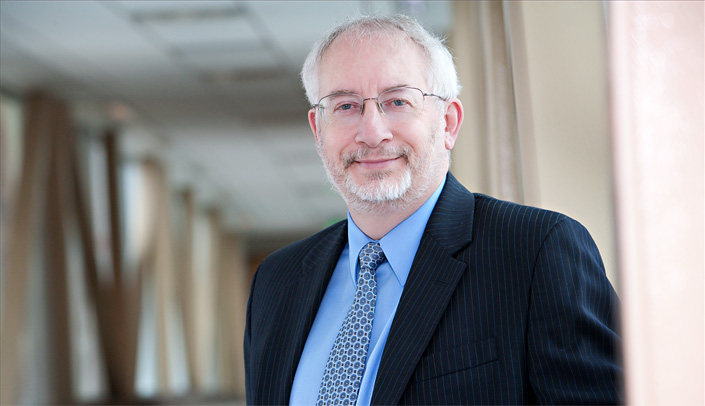Let me start by offering my congratulations, a few days in advance, to the class of 2022 on their graduation from the UNMC College of Medicine. The path has been fraught with major hurdles, most notably a pandemic, but you made it, and we are all exceedingly proud of your accomplishments and wish you the best in the next stage of your training.
I write this while in Wilmington, Delaware, attending another graduation, that of the class of 2022 graduates of the Executive Leadership in Academic Medicine (ELAM) program. Two of our faculty, Shirley Delair, MD, and Merry Lindsey, PhD, are among the graduates, and I am here to support and congratulate them. For those of you who are not familiar with it, ELAM is an intense yearlong leadership training program for current and future leaders in academic medicine who are women. It is a highly competitive program that, over its more than two decades of existence, has surpassed 1,000 graduates. As is the case in many institutions, a significant number of the senior women leaders at UNMC, including several department chairs, division directors, associate deans, vice chancellors and medical staff leadership, are ELAM graduates, also referred to as ELUMs. As part of the program, every participant is responsible for the creation and accomplishment of a year-long project that is of particular interest to them and presented as part of the graduation celebration. A number of new initiatives and programs that have been implemented at UNMC in recent years have had their origins as ELAM projects.
While sitting in the audience and listening to the ideas and accomplishments of this remarkable group of women, it also was disappointing to hear the almost uniform challenges of sexual harassment, bullying and devaluation that each has encountered at multiple points during their careers. Unfortunately, the data do not suggest that things have changed much over my 40 years in academic medicine. A sobering statistic presented was that even with a recent uptick in rates in which women, who now make up more than 50% of medical school classes, are in senior leadership positions, it will not be until after 2050 before parity is reached with men.
Unfortunately, many of the factors that have impeded women’s advancement relate to disproportionate responsibility for child care and domestic chores, something that the pandemic has exacerbated. The experiences are compounded further for women who also belong to other underrepresented groups in medicine. Clearly, we have much work to do to address these disparities and stop the loss of so many talented individuals from academic medicine.
One of the strengths of ELAM is the mentoring and networking that occurs as part of the program. Access to supportive mentors is perhaps one of the strongest predictors of an individual’s professional success. Thus, it is also worth noting two college of medicine faculty who recently were recognized by the Faculty Senate for their accomplishments as mentors of students and faculty -Tammy Kielian, PhD, and Gurudutt Pendyala, PhD. Mentoring is a time commitment that usually offers no financial rewards and can detract from time available for activities that enhance ones own professional success or personal responsibilities. But the willingness of our faculty, staff and students to help each other to achieve their full potential is what makes UNMC the successful academic enterprise that it is. Thank you for all that each of you do to help and support one another.
So, once again congratulations to each of our May graduates, and we look forward as well to the upcoming graduations of our residency and fellowship programs in June.
